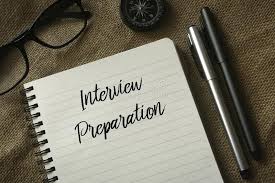Don’t argue with an interviewer if you want to get a job offer
You may not get the point of some interview questions, but don’t argue with an interviewer if your goal is to get an offer. A combative response won’t impress them and you’ll lose that battle. Instead, look at the big picture. Figure out what it is they really want to know about you. Then give them answers that leads to a job offer.
You need to get an offer to be able to turn it down.
Arguing the point of a question will cause you to miss the mark. Remind yourself of the purpose of the interview. They need help and you may need (or want) a job. Each is a solution for the other. So make mental notes of what you hear that seems off, then ask clarifying questions. You won’t win if you start arguing with the interviewer just to prove a point. Remember that you need to get an offer before you can turn it down.
Defensiveness can lead to arguments with an interviewer or unnecessary detours.
The combination of being desperate for a job and being unprepared makes it easier to get sidetracked or defensive. Your defensiveness can cause you to argue with the interviewer or make unnecessary detours. Completing the following prerequisites will increase your confidence and set you up for a successful interview.
Be clear about your goals and objectives before you go into an interview. If you are up in the air about what you want to do and why, you’ve immediately put yourself in a weak position. You can open yourself up to being talked into anything, or your lack of clarity could cause you to be perceived as someone other than the person you know you are. Your reason for wanting a specific role and how it fits into your longer-term career strategy must be clear to you. The interviewer doesn’t need to know that your intent is to use this role as a stepping stone, but you do! Having clear goals and a specific intent makes you appear confident (not arrogant). It will also help you retain your composure when they ask questions that could otherwise feel threatening.
Do your homework about the organization and market conditions. Make sure you are clear about how this role will most likely fit your needs before you interview. Conflicts can stem from having unrealistic expectations around a role’s requirements or compensation. Understand what the role typically entails and compare that to what is included in the job description. Research the industry to learn what current competitive market rates for the role are. Overall, the more you know up front, the less likely you will be caught off guard. If you hear something that tips the scales in a bad way, make a note of it. Then take a moment to consider what you need to know to either confirm your assumptions or dispel a concern, before you launch into combat. You may have misheard them or you may have misunderstood the question entirely.
Have a strategy for handling an awkward or unpleasant interviewer. If you know you need this position and from all of the information you have uncovered prior to now the company seems great, don’t let an interviewer’s flaws or bad attitude derail you. Practice responding to unusual questions so you’ll be able to maintain your composure in the event you are faced with something unpredictable in the interview. There are hiring managers who are just as uncomfortable with interviews as you are. A person who is having a bad day may poke the bear, so to speak, just because they can. Don’t bite. Remember to keep your goal in mind before you react.
Stay focused on the goal: to get an offer. There are some behaviors or actions that are intolerable. If you are experiencing bodily or mental harm, then yes, by all means speak up. But if something is just rubbing at you the wrong way or if the way someone is speaking reminds you of an unpleasant situation, stay in the moment. Pause. Don’t react. Consider their intent again. Most interviewers are there to solve a problem, just like you are. Just like any other conflict, you won’t find resolution by arguing.
Interviewers don’t want to argue. They’re interested in how well you think on your feet.
You may be wondering if interviewers ask questions just for the sake of argument. Perhaps sometimes they do, but the question really is why? Not all questions are “trick” questions. Do you fully understand their intent or have you simply assumed they are completely off point? They may be trying to see how you react to an unusual circumstance or ambiguity. Interviewers don’t want to argue. They are interested in how well you think on your feet and how well you solve problems. And they may simply be testing your reactions to the same types of situations you will encounter in your job.
Miscommunications and ensuing arguments can also stem from vague questions. If you are ever unclear about what is asked, then ask for clarification. Restating the question can also help you to correct a misunderstanding that could potentially cause you to react negatively.
Determine the interviewer’s intent.
Interviewers might ask questions that seems irrelevant to to the discussion. When they do, you can paraphrase the question or ask for clarification. Quickly determine the interviewer’s intent vs thinking it is an invitation to argue. Are they asking a skill-related question? Or perhaps they’re trying to determine if you’ll get bored. They may be testing to see if you will want more money than they can pay. Whatever the angle, you’ve got to remember what you each need. Stay focused on the goal.
Another area that can create conflict is when the interviewer states, “you’re overqualified.” That’s not the time to argue or assume anything. Remember that if you let your ego puff up, you may end up with zip. Don’t let them derail you.
Tell an interviewer why you want the job.
Make sure you are clear about why you want the job. Your reason for taking a more junior position may supersede your desire for a bigger title or more money. It could be that you want more time with your family or that you’re tired of the intensity of a higher-level role. Maybe your only interest is how it exposes you to a technology or process that you absolutely need to move to the next level in a new industry. Whatever your intent is, you have to be prepared to tell an interviewer why you want the job. Your response has to include what’s in it for them. Don’t argue with an interviewer when they pose questions to ensure it is a fit. Stay calm and point out your fit with the position.
Stick with your strategy.
If your strategy includes learning from the role to jump to the next, a literal answer isn’t likely to lead to an offer. Instead, you must look at it from their perspective. Know exactly how you can serve their needs and stay focused on that. Indicating you are more focused on what’s next may prompt them to pass. If your intent is to stay with this company and grow, then ask about how others have advanced in the organization. Whatever your reason for wanting this job, you’ve got to stick with your strategy.
Close the deal.
Hearing “you’re overqualified” might mean they’re testing your level of commitment. They don’t want to invest in you only to have you leave quickly. This can be an easy concern to overcome. Don’t argue with the interviewer. A better tactic is to calmly agree with them. Get excited and use their statement to close the deal. You can tell them “I’m so glad! I think I am best qualified. I am excited about being able to learn (processes, systems, products) from the ground up, and I know that I can bring a lot of value with my experience (doing xx).”
If your goal is to stay with the company and grow, and your research has shown it’s possible, then this opportunity could truly be a win-win for everyone. Your objective is to demonstrate how. (If you are there to build the skill you need to be more competitive elsewhere, so be it. You’ll give them two weeks’ notice if and when that happens.) You’ll miss the opportunity entirely if you argue with the interviewer. Whatever your reasons are for accepting a position or declining it, it should be your decision. If you never get an offer, you’ve allowed it to be their decision.
Relate back to their need and match it with your need.
Arguing with an interviewer leads you to saying the wrong thing or saying too much altogether. Providing too many opinions can prompt them to wrongly interpret your level of interest or value. Pausing, breathing and considering positive intent can keep the conversation moving forward. Relate back to their need and match it with yours. Then you can respond with answers that serve as a solution in connecting those points. Go in there to get the offer and close the deal! You can always turn it down if it is truly not a match.
For more great advice from Sherri on this topic, check out her Unbeatable Interviewing Techniques webinar and follow her on LinkedIn.









